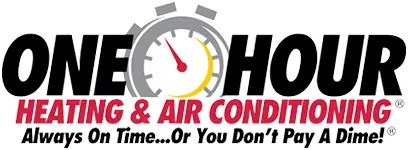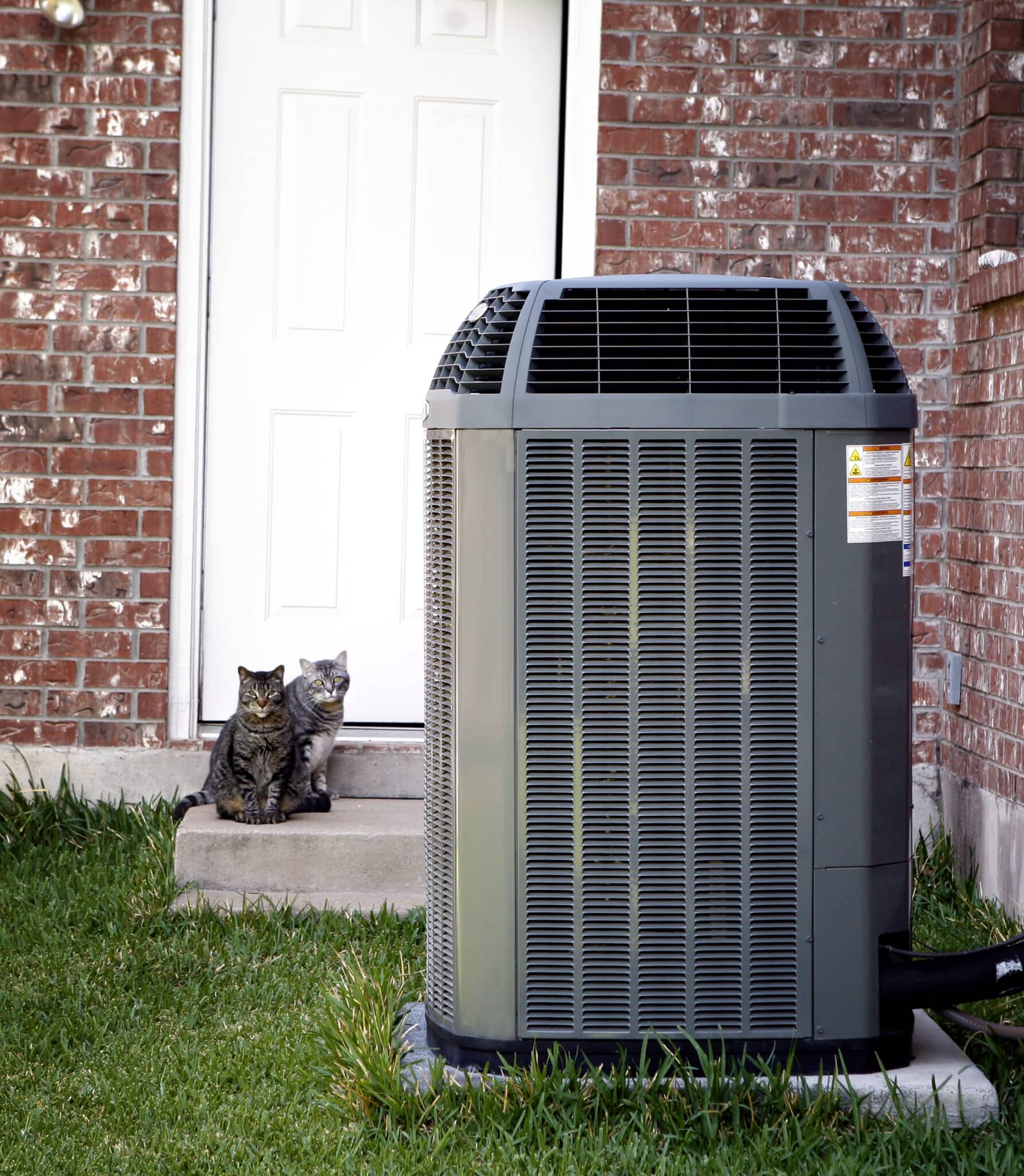- Lower Energy Bills: Energy-efficient HVAC systems significantly reduce your monthly energy consumption, leading to noticeable savings on your utility bills.
- Environmental Benefits: These systems help decrease your carbon footprint by using less energy and reducing greenhouse gas emissions.
- Enhanced Comfort: Enjoy a more comfortable home with systems designed to maintain consistent indoor temperatures and better air quality.
- Advanced Technology: Energy-efficient systems often feature smart controls, variable-speed compressors, and heat recovery ventilators, offering precise temperature control and improved performance.
- Increased Home Value: Installing an energy-efficient HVAC system can boost your home’s resale value, making it an attractive option for potential buyers.
- Government Incentives: Take advantage of financial rebates and incentives offered for upgrading to energy-efficient systems, making the transition more affordable.
- Durability and Longevity: These systems are built to last longer and require less maintenance compared to traditional HVAC units, providing long-term reliability.
- Quiet Operation: Modern energy-efficient HVAC systems operate more quietly, reducing noise pollution and contributing to a peaceful home environment.
Are you tired of skyrocketing energy bills every season? Or maybe you’re looking to make your home more eco-friendly without sacrificing comfort? Energy-efficient HVAC systems could be the solution you’re searching for. These advanced systems not only reduce your carbon footprint but also offer significant savings on energy costs.
In this article, we’ll explore why upgrading to an energy-efficient HVAC system is a smart investment, the types of systems available, and how they can enhance your home’s comfort year-round. Whether you’re in Lancaster, York, or Harrisburg, PA, this guide will help you make an informed decision for your home and the environment.
Understanding Energy-Efficient HVAC Systems
Overview of HVAC Systems
HVAC systems are the backbone of home comfort, responsible for heating, ventilation, and air conditioning. They ensure that your living space stays warm in winter and cool in summer, while also maintaining indoor air quality. Traditional HVAC systems, however, can be energy-intensive, leading to high utility bills and increased environmental impact. This is where energy-efficient HVAC systems come in, offering a more sustainable and cost-effective solution.
Benefits of Energy-Efficient HVAC Systems
Cost Savings on Energy Bills: By optimizing energy use, these systems can significantly lower your monthly expenses.
Environmental Impact and Reduction of Carbon Footprint: Energy-efficient HVAC systems contribute to a greener environment by reducing greenhouse gas emissions and conserving natural resources.
Improved Indoor Comfort and Air Quality: These systems ensure consistent temperature control and better air filtration, enhancing overall indoor comfort and health.
Types of Energy-Efficient HVAC Systems
Choosing the right energy-efficient HVAC system for your home involves understanding the different types available. Each system offers unique benefits tailored to various needs, climates, and home sizes.
High-Efficiency Central Air Conditioners
High-efficiency central air conditioners are designed to cool your home while using significantly less energy than standard models. These systems typically have a higher Seasonal Energy Efficiency Ratio (SEER) rating, which measures the cooling output divided by the energy input. A higher SEER rating means greater efficiency. These systems are ideal for homeowners in warmer climates who require consistent cooling throughout the year.
Energy-Efficient Heat Pumps
Heat pumps are versatile systems that can both heat and cool your home. They are particularly energy-efficient because they transfer heat rather than generating it. This makes them much more efficient than traditional heating and cooling methods. There are different types of heat pumps, including air-source, ground-source (geothermal), and water-source models, each suited to different environments and needs.
Hybrid HVAC Systems
Hybrid systems combine a traditional furnace with an electric heat pump, offering the flexibility to switch between energy sources depending on the outdoor temperature. During milder weather, the heat pump provides efficient heating and cooling, while the furnace kicks in during extreme cold, ensuring comfort without excessive energy use. This dual approach makes hybrid systems highly efficient and adaptable to varying climates.
How Energy-Efficient HVAC Systems Work
Understanding how energy-efficient HVAC systems work can help you appreciate their benefits and make informed decisions when upgrading your home’s heating and cooling systems.
Basics of Heat Exchange and Air Circulation
At the core of every HVAC system is the process of heat exchange, where heat is either absorbed or released to maintain the desired indoor temperature. In energy-efficient systems, this process is optimized to minimize energy loss. For instance, during cooling, refrigerants absorb heat from inside your home and release it outside. The efficiency of this process is enhanced by advanced components like variable-speed compressors, which adjust the system’s output to match the exact needs of your home, reducing unnecessary energy use.
Air circulation is another critical aspect. Energy-efficient systems are designed to ensure even and effective distribution of air throughout your home. This not only maintains consistent temperatures but also improves indoor air quality. Properly designed ductwork and advanced air filters help remove pollutants and allergens, contributing to a healthier living environment.
Role of Insulation in Enhancing Efficiency
Insulation plays a significant role in the overall efficiency of your HVAC system. Proper insulation helps maintain the temperature inside your home, reducing the workload on your HVAC system. When your home is well-insulated, less energy is required to heat or cool your space, leading to lower energy bills and less strain on your HVAC system.
Energy-efficient HVAC systems often work best in homes with adequate insulation, as this combination maximizes the benefits of both the system and the insulation, ensuring optimal performance and comfort.
Smart Control Systems and Automation
Smart control systems and automation are key features of modern energy-efficient HVAC systems. These systems include smart thermostats that can learn your schedule, preferences, and adjust settings automatically to save energy. For example, the system can lower the temperature when you’re not home and start cooling the house just before you return, ensuring comfort without wasting energy.
Additionally, many smart thermostats can be controlled remotely via smartphone apps, allowing you to adjust settings even when you’re away, further enhancing convenience and energy savings.
Installation of Energy-Efficient HVAC Systems
Proper installation of an energy-efficient HVAC system is crucial to ensure it operates at peak performance and delivers the expected energy savings. Here’s what you need to know about the installation process.
Importance of Professional Installation
Professional installation is key to the successful operation of your new HVAC system. Even the most advanced and efficient systems can underperform if not installed correctly. Certified HVAC professionals have the expertise to handle complex installations, ensuring that all components are correctly set up, calibrated, and tested.
They also understand local building codes and safety regulations, which are vital for ensuring that your system is both safe and compliant. Skimping on professional installation can lead to poor system performance, higher energy bills, and even premature system failure.
Steps in the Installation Process
The installation process typically begins with a thorough evaluation of your home, including assessing the current ductwork, insulation, and electrical systems. The HVAC technician will then remove the old system, taking care to properly dispose of any refrigerants or other hazardous materials in accordance with environmental regulations.
Next, the new energy-efficient system is installed, starting with any necessary upgrades to the ductwork or insulation to ensure optimal performance. The technician will install the indoor and outdoor units, connect refrigerant lines, and ensure that all electrical connections are secure. Once the system is physically installed, the technician will calibrate the system, checking for leaks, verifying airflow, and testing the thermostat to ensure everything is working correctly.
Potential Challenges and How to Overcome Them
While installing an energy-efficient HVAC system, several challenges may arise. For instance, older homes may have outdated electrical systems or insufficient ductwork that needs upgrading to support the new system. These issues can increase the complexity and cost of the installation. However, a professional HVAC contractor can identify and address these challenges early in the process, ensuring a smooth installation.
Maintenance Tips for Energy-Efficient HVAC Systems
To keep your energy-efficient HVAC system running smoothly and to maximize its lifespan, regular maintenance is essential. Proper upkeep not only ensures that your system operates at peak efficiency but also prevents costly repairs down the line.
Regular Filter Replacement
One of the simplest yet most important maintenance tasks is regular filter replacement. HVAC filters trap dust, dirt, and other particles, preventing them from circulating through your home. Over time, these filters can become clogged, reducing airflow and forcing your system to work harder, which diminishes efficiency. For optimal performance, it’s recommended to check your filters every month and replace them at least every 1-3 months, depending on usage and the type of filter. Homes with pets or in areas with high levels of dust or pollen may require more frequent changes.
Scheduling Annual Tune-Ups
An annual tune-up by a professional HVAC technician is crucial for maintaining the efficiency and reliability of your system. During a tune-up, the technician will inspect, clean, and adjust your HVAC components to ensure everything is operating correctly. This includes checking the thermostat settings, tightening electrical connections, lubricating moving parts, inspecting the condensate drain, and checking system controls. A well-maintained system runs more efficiently, helping to keep your energy bills low and extending the lifespan of your equipment.
Ensuring Proper Ventilation and Airflow
Proper ventilation and airflow are critical for your HVAC system’s efficiency and your home’s indoor air quality. Blocked vents or ducts can cause uneven heating or cooling and make your system work harder than necessary. Make sure all vents are unobstructed by furniture, curtains, or other objects. Additionally, keep an eye on your outdoor unit; ensure it is free from debris such as leaves, grass, and dirt that could block airflow and reduce efficiency. If you notice inconsistent temperatures in different rooms, it might be time to have your ductwork inspected for leaks or blockages.
Energy-Efficient HVAC Systems in Lancaster, PA
Selecting the right energy-efficient HVAC system for your home in Lancaster, PA, requires careful consideration of the local climate and specific needs. Here’s what you need to know to make an informed decision.
Climate Considerations
Lancaster, PA, experiences a humid continental climate with hot summers and cold winters. This variability means that your HVAC system needs to efficiently manage both heating and cooling demands. In the summer, high humidity levels can make the heat feel more intense, while winters are often cold and snowy. Therefore, an energy-efficient HVAC system in Lancaster should offer strong performance across all seasons, with a focus on humidity control during the summer and reliable heating during the winter.
Recommended System Types for the Area
Given the climate, certain types of energy-efficient HVAC systems are particularly well-suited for homes in Lancaster:
High-Efficiency Heat Pumps: These systems are ideal for moderate climates like Lancaster’s, offering both heating and cooling capabilities. With advanced technology like variable-speed compressors, they can adjust to the seasonal demands efficiently.
Hybrid HVAC Systems: A hybrid system combines a heat pump with a furnace, allowing you to switch between electricity and gas depending on the outdoor temperature. This flexibility ensures that your home remains comfortable while optimizing energy use, especially during Lancaster’s cold winters.
Energy-Efficient Central Air Conditioners with Dehumidifiers: For those hot and humid summer months, a high-efficiency central air conditioning system with an integrated dehumidifier can keep your home cool and dry, enhancing comfort and reducing energy consumption.
Energy-Efficient HVAC Systems in York, PA
York, PA, like much of central Pennsylvania, has a climate that requires a balanced approach to both heating and cooling. Choosing the right energy-efficient HVAC system for your home can make all the difference in comfort and energy savings.
Climate Considerations
York experiences a similar humid continental climate to Lancaster, with hot, humid summers and cold winters. The seasonal temperature swings mean that your HVAC system needs to handle both extremes efficiently. Summers can be particularly muggy, so effective cooling and dehumidification are crucial. During the winter, consistent and reliable heating is necessary to maintain comfort as temperatures frequently drop below freezing.
Recommended System Types for the Area
Given the demands of York’s climate, several energy-efficient HVAC systems are particularly well-suited:
Energy-Efficient Heat Pumps: For York residents, heat pumps offer an excellent year-round solution. In the summer, they provide efficient cooling, while in the winter, they can heat your home without the high energy costs associated with traditional systems. Modern heat pumps are designed to perform well even in lower temperatures, making them a viable option for York’s winters.
Dual-Fuel Systems: Also known as hybrid systems, these combine the efficiency of a heat pump with the reliability of a gas furnace. The system automatically switches between the heat pump and furnace depending on the outdoor temperature, ensuring optimal energy use and comfort throughout the year.
High-Efficiency Central Air Conditioners: For those particularly hot and humid summer months, a high-efficiency central air conditioning system is essential. Systems with a high SEER rating provide effective cooling while keeping energy consumption low. Coupled with a smart thermostat, these systems can be adjusted remotely to maximize efficiency.
Energy-Efficient HVAC Systems in Harrisburg, PA
Harrisburg, PA, experiences significant seasonal temperature variations, making the choice of an energy-efficient HVAC system crucial for maintaining comfort and minimizing energy costs. Here’s what to consider when selecting a system for your home in this region.
Climate Considerations
Harrisburg has a humid continental climate characterized by hot, humid summers and cold winters, similar to other parts of central Pennsylvania. The summer months can bring high humidity, making effective cooling and dehumidification essential. Winters, on the other hand, are often cold, with temperatures frequently dipping below freezing. An energy-efficient HVAC system in Harrisburg must therefore excel in both heating and cooling to manage the wide range of weather conditions.
Recommended System Types for the Area
Given Harrisburg’s climate, the following energy-efficient HVAC systems are highly recommended:
Geothermal Heat Pumps: Geothermal systems are among the most energy-efficient options available. They leverage the stable temperatures underground to provide heating in the winter and cooling in the summer. Although the upfront cost can be higher, geothermal systems offer significant long-term savings due to their high efficiency and low operating costs. They are particularly effective in regions like Harrisburg, where both heating and cooling are required throughout the year.
High-Efficiency Furnaces: For those who prefer traditional systems, high-efficiency furnaces are a great choice for Harrisburg’s cold winters. Furnaces with a high Annual Fuel Utilization Efficiency (AFUE) rating convert more fuel into heat, reducing energy waste. Pairing a high-efficiency furnace with an air conditioning unit that has a high SEER rating ensures year-round comfort with minimal energy consumption.
Ductless Mini-Split Systems: These systems are ideal for homes without existing ductwork or for targeted heating and cooling of specific areas. They are highly efficient, as they eliminate the energy losses associated with ducts, and they offer flexibility in managing the temperature in different zones of your home. This is particularly useful in older homes or those with unique architectural layouts common in Harrisburg.
FAQs
-
How Much Can I Save with an Energy-Efficient HVAC System?
You can save between 20% to 40% on your energy bills with an energy-efficient HVAC system. The exact savings depend on factors like your home’s insulation, local climate, and the efficiency of the system you choose.
-
What is the Lifespan of an Energy-Efficient HVAC System?
Energy-efficient HVAC systems typically last 15 to 20 years with proper maintenance. Regular tune-ups and timely filter replacements can help extend the system’s lifespan and maintain its efficiency.
-
Are There Any Downsides to Energy-Efficient HVAC Systems?
The main downside is the higher upfront cost. However, this is often offset by lower energy bills and available rebates. Additionally, the long-term benefits of reduced energy consumption and improved comfort make these systems a worthwhile investment.
-
Do Energy-Efficient HVAC Systems Require More Maintenance?
No, energy-efficient systems do not necessarily require more maintenance than traditional systems. In fact, their advanced features can reduce wear and tear, potentially lowering the need for repairs. However, regular maintenance is still essential to keep the system running at peak efficiency.
-
Can I Retrofit My Existing HVAC System to Be More Energy-Efficient?
Yes, you can upgrade certain components of your existing HVAC system, such as the thermostat or adding insulation, to improve efficiency. However, for maximum energy savings, a complete system upgrade may be more effective.







